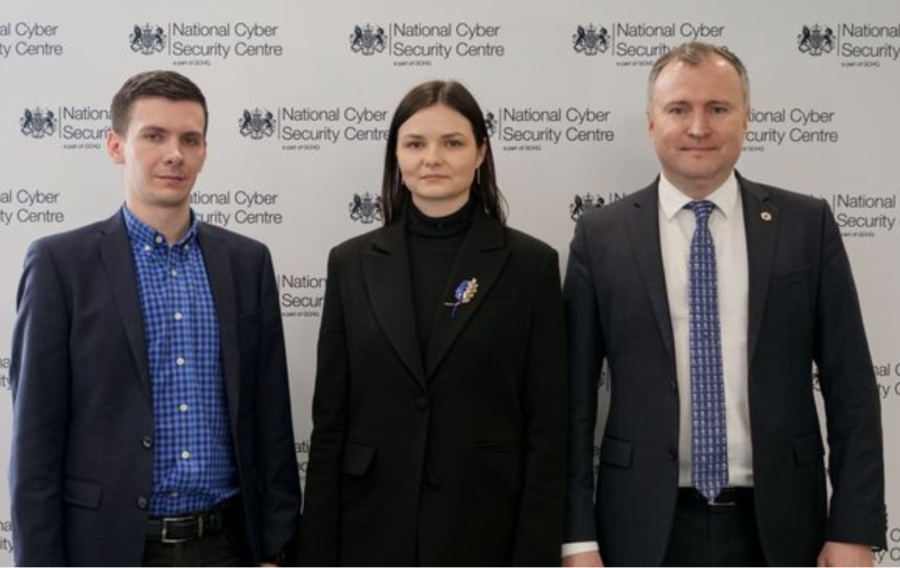
Key figures in Ukraine’s defence against Russian hostility in cyberspace have held high-level meetings with their UK counterparts in London to discuss the latest developments in the conflict.
In their first visit to the UK since the start of the conflict, members of the national Computer Emergency Response Team for Ukraine (CERT-UA) visited the offices of the National Cyber Security Centre – a part of GCHQ – for bilateral talks to further discuss the conflict and resilience building.
Earlier in the week, the Ukrainian delegation appeared in front of an audience of experts at the CyberThreat conference in London, where they joined the National Cyber Security Centre’s Director of Operations Paul Chichester for a fireside discussion to share some of their insights from the conflict.
The NCSC has provided ongoing support for Ukraine alongside the FCDO since the beginning of the conflict.
NCSC Director of Operations, Paul Chichester, said:“Ukraine has defended itself resolutely in cyberspace in the face of Russian aggression and the UK has been proud to support that defence.
“It is fitting that, here in the UK, we are hosting senior figures involved in Ukraine’s response. We are honoured to do so.
“This visit is an important moment in our relationship and an excellent opportunity to learn from each other as we continue to build our collective resilience.”
In response to Russia’s invasion of Ukraine, the NCSC published a bespoke package of support for organisations which contained advice to mitigate the associated cyber security risks.
This included an alert urging public and private sector organisations across the UK to bolster their cyber security resilience in response to events in Ukraine, and bespoke advice to businesses on maintaining the resilience of IT staff during the extended period of heightened threat.
While the cyber threat to the UK from Russia has not changed significantly since the start of its invasion of Ukraine, organisations are still strongly encouraged to follow the NCSC’s advice.
Since its creation in 2016, the NCSC has viewed Russia’s cyber capabilities and intentions as an acute and persistent threat to the UK’s interests.
Russia continues to be a persistent and active threat to the UK and its interests, and in recent months the UK government has attributed cyber attacks to the Russian State for its involvement in the compromise of SolarWinds, DDoS attacks on Ukraine’s financial sector, and the targeting the COVID vaccine supply chain.
image courtesy of NCSC
If you would like to join our community and read more articles like this then please click here.







